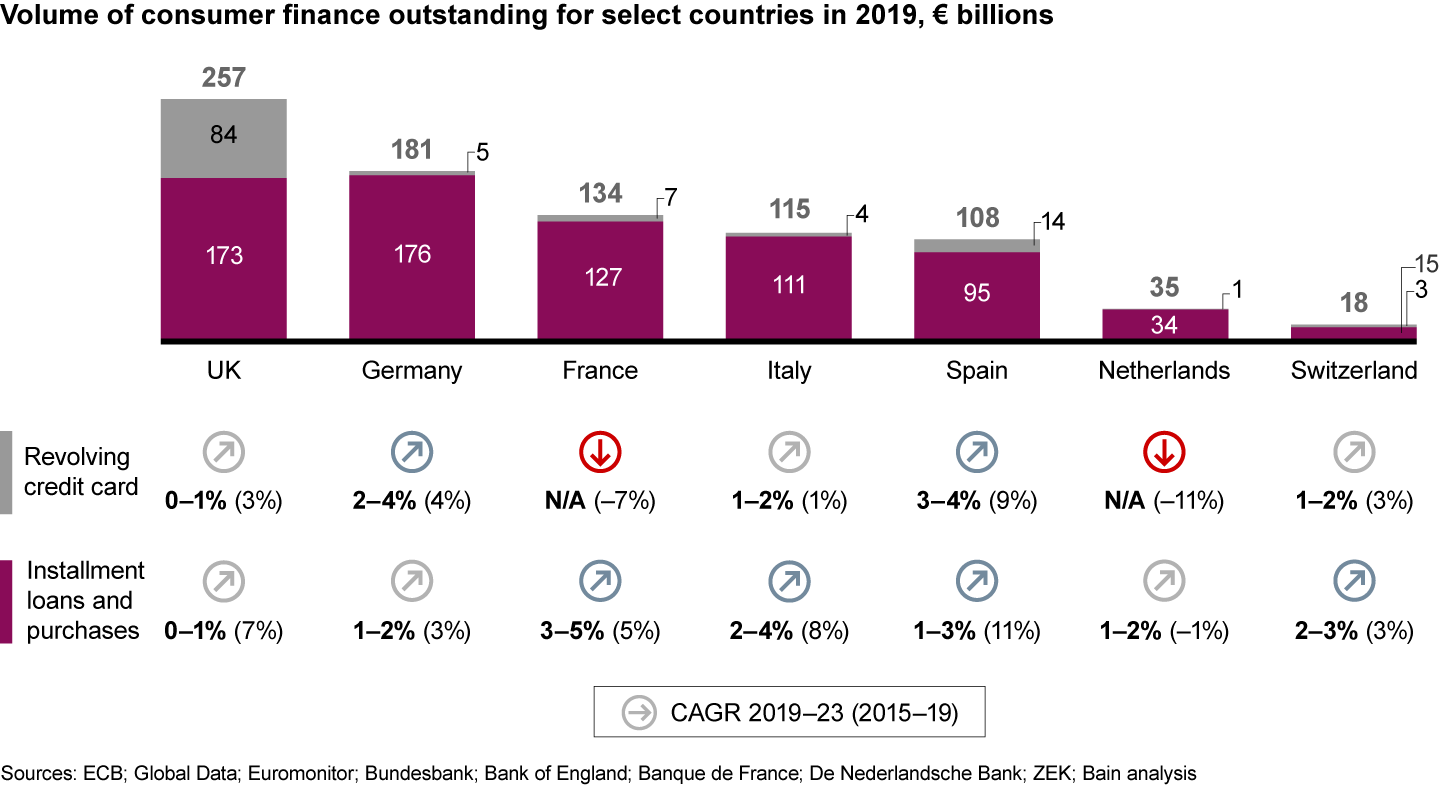Brief

Revolving credit, installment loans and other forms of consumer finance constitute one of the last profitable niches in retail banking in Europe, with steady growth and no dominant firm. National regulatory frameworks limit region-wide efficiencies, so the market remains fragmented.

Macro Surveillance Platform
For more detail on the business implications of coronavirus from Bain’s Macro Trends Group, log on to the Macro Surveillance Platform. Learn more about the platform >
Moreover, the markets for consumer finance and payments have been converging through a number of products, such as “buy now, pay later,” from banks, consumer finance specialist firms and payment firms. Competition is increasing as payment firms such as Klarna and PayPal enter the market and use their existing consumer and merchant relationships.
The volume of consumer credit reached €965 billion in 2019, almost half of which came in the UK and Germany. Financial fallout from Covid-19 is likely to slow volume growth to the low-to-mid single digits until 2023, at stable prices, Bain & Company estimates (see Figure 1).


Now that products and consumer behavior are changing quickly, companies will have to master four areas in order to succeed:
- Consumer-centered digital products. Consumers want credit products to work at all relevant points of sale. They demand simple, convenient payment solutions with consumer finance options. Klarna’s mobile app, for instance, offers flexible repayment methods for purchases, as well as round-the-clock customer service.
- An integrated customer interface. Large technology firms, retailers and banks are trying to refine their customer interface to include consumer finance at the point of sale. Amazon has started to offer installment purchases through its e-commerce platform for selected products. To attract consumers, companies will have to offer superior integration within their core offering.
- Consumer data. The data exhaust from loyalty programs or other business units should help inform offerings tailored to consumers and reduce churn. An example is credit card products linked to data from reward programs that offer vouchers and cash back at select merchants.
- Risk management. Economic turmoil following the pandemic highlights the importance of enhancing risk management through new data and scoring methods. This will keep nonperforming loan ratios down and provide flexibility for new business growth.
Companies that excel in these four areas will stay relevant and may even gain market share.

Coronavirus
The global Covid-19 pandemic has extracted a terrible human toll and spurred sweeping changes in the world economy. Across industries, executives have begun reassessing their strategies and repositioning their companies to thrive now and in the world beyond coronavirus.